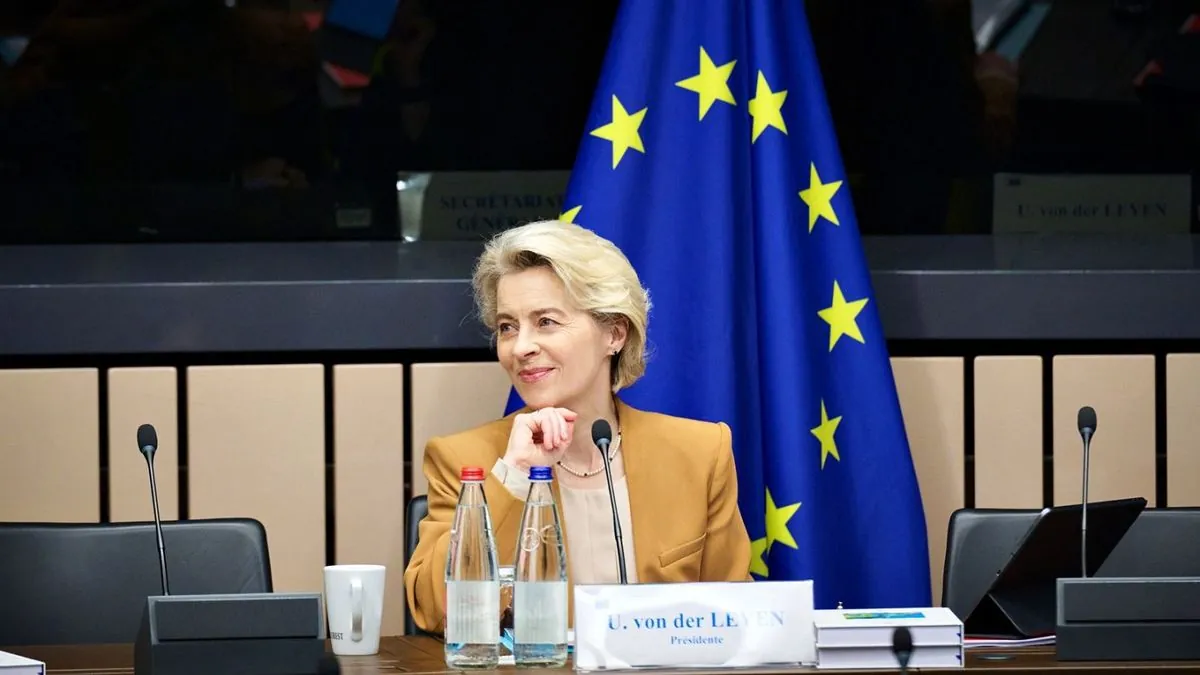EU Commission Shake-up: Von der Leyen Faces Challenges in Team Formation
European Commission President Ursula von der Leyen prepares to unveil her new team amidst controversies and resignations. The process highlights struggles for gender balance and member state cooperation.

As the European Union prepares for a new five-year term, Ursula von der Leyen, President of the European Commission, is set to announce her team of 26 Commissioners on September 17, 2024. This process, however, has been far from smooth, with numerous challenges and controversies emerging along the way.
The formation of the new Commission has been marked by difficulties, including the unexpected resignation of Thierry Breton, a prominent French official. Breton's departure, accompanied by accusations of "questionable governance" against von der Leyen, has added to the already complex situation. Some observers interpret this event as von der Leyen's attempt to remove an outspoken critic from her team.
One of the primary challenges faced by von der Leyen has been achieving gender parity within the Commission. Despite her efforts, many member states have been reluctant to provide a choice between male and female candidates, complicating the selection process.

The European Commission, established in 1958, plays a crucial role in the functioning of the EU. As the executive branch of the Union, it proposes legislation, enforces EU laws, and manages the day-to-day operations of the bloc. With 27 Commissioners, one from each member state, the Commission represents a diverse range of portfolios, including agriculture, economic affairs, competition, security, and migration policy.
Von der Leyen, the first woman to serve as President of the European Commission, has been engaged in extensive negotiations with individual European governments and leaders of political groups in the European Parliament. These discussions aim to finalize the composition of her team and allocate portfolios among the Commissioners.
While the Commission's formation may not be a topic of widespread public discussion across the EU's 450 million citizens, it has captivated the attention of high-level political and bureaucratic circles. The allocation of key positions, such as vice presidencies and coveted portfolios like trade, finance, or EU enlargement, has been a subject of intense speculation and maneuvering.
The new Commission is scheduled to commence its work on November 1, 2024. However, given the ongoing challenges and potential delays in the approval process, there is speculation that the actual start date might be pushed back to January 2025.
As von der Leyen navigates these complexities, she continues to press for changes, particularly in smaller countries. In recent weeks, Slovenia has replaced its preferred male candidate with a female nominee, demonstrating the ongoing efforts to balance the Commission's composition.
"The search for the 26 members of her college was chaotic and scandal-ridden even before the parliament is to start hearings on whether to accept each proposed candidate."
The formation of this new European Commission underscores the intricate balance required in EU politics, where national interests, gender representation, and institutional effectiveness must be carefully weighed. As the guardian of EU treaties and the driving force behind EU legislation, the Commission's composition and smooth functioning are crucial for the future direction of the European Union.


































